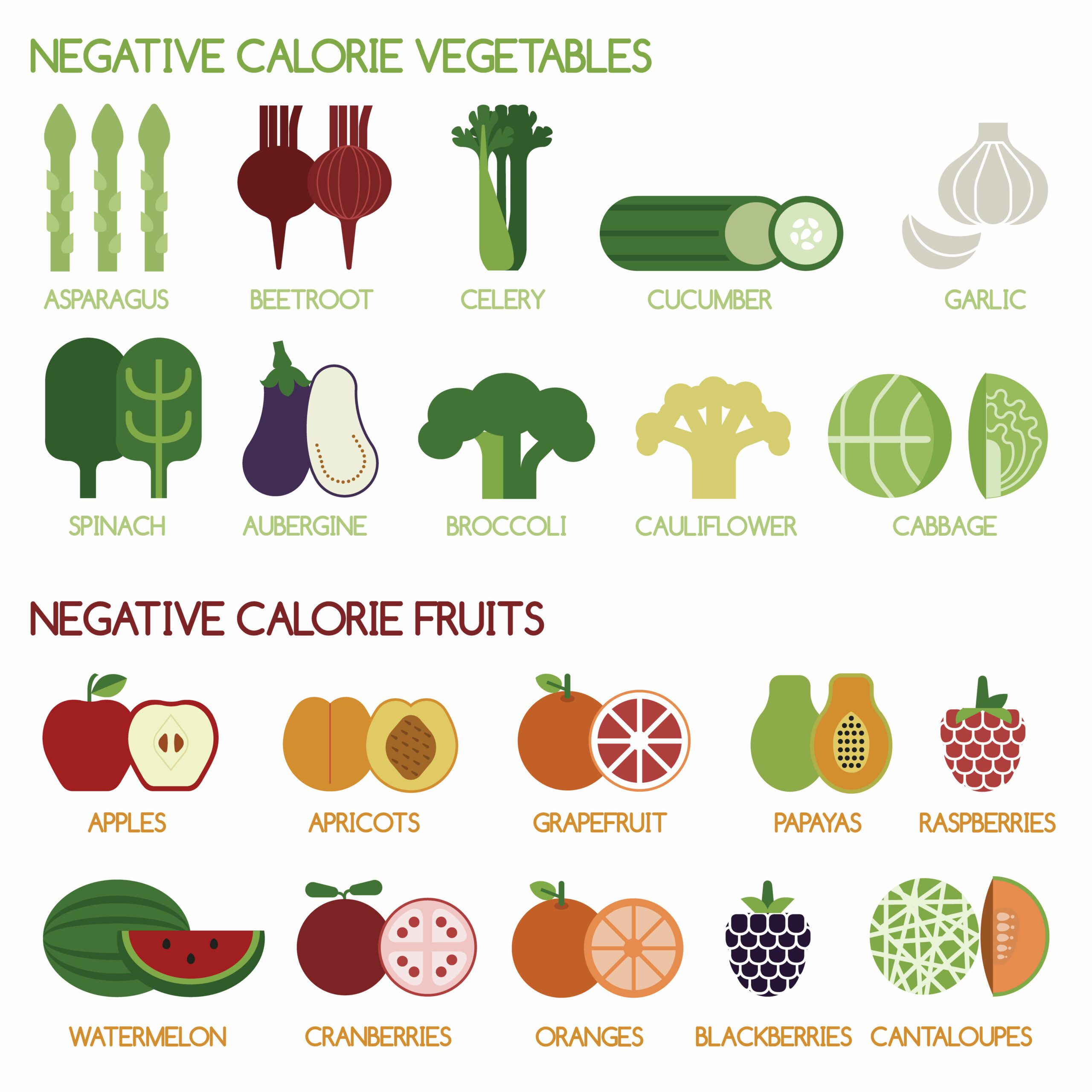Maximizing Nutrition and Minimizing Calories: A Deep Dive into Negative Calorie Foods
June 21, 2023
 691
691 
Written by: Jack Riess, NASM Certified Personal Trainer and Lifelong Scholar of Health and Longevity Research.
Looking for an effective strategy for weight loss and better nutrition?
Consider integrating ‘negative calorie Nutrition’ foods into your diet.
Dense with nutrients and fiber yet low in calories, these foods can assist in regulating hunger, enhancing nutrition, and fostering a healthier relationship with food, crucial factors in achieving sustainable weight loss.
‘Negative calorie’ is a concept anchored on the premise that some foods require more energy to digest than the calories they provide. Consequently, the body experiences a net calorie loss during digestion, thus the term ‘negative calorie’.
High in fiber and water content, these foods include celery, lettuce, cucumbers, tomatoes, and grapefruit among others. They fill you up without the burden of added calories.
Here’s an optimized list of ‘Negative Calorie’ Foods for Breakfast, Lunch, Dinner, and Snacks:
Breakfast Negative Calorie Superfoods:
Grapefruit: Loaded with vitamin C and low in calories, grapefruit can be eaten solo or incorporated into a fruit salad.
Berries: Nutrient-dense strawberries, blueberries, and raspberries are excellent inclusions to yogurt, oatmeal, or smoothies.
Spinach: Kick-start your day with a low-calorie, nutrient-rich spinach infused egg-white omelet or smoothie.
Negative Calorie Foods for Lunch:
Celery: Enhance your salads with crunchy celery sticks or pair them with low-calorie dips like hummus or salsa.
Cucumber: Incorporate sliced cucumbers into salads or use them as sandwich bases for a light, low-calorie lunch.
Lettuce: Lettuce leaves make perfect wraps for lean proteins like grilled chicken or turkey. Alternatively, create a low-calorie salad with assorted veggies and a light dressing.
Dinner Options with Negative Calorie Foods:
Broccoli: Complement your dinner with steamed or sautéed broccoli, or include it in a stir-fry with lean protein and low-calorie vegetables.
Cauliflower: Replace rice with cauliflower or mash it like potatoes for a low-calorie dinner option.
Zucchini: Opt for spiralized zucchini as a pasta substitute, or slice and grill it for a low-calorie side dish.
Negative Calorie Snacks:
Carrots: Consider baby carrots or carrot sticks as a low-calorie snack, best served with a light dip or dressing.
Bell peppers: Enjoy sliced bell peppers with a low-fat dip or stuff them with lean proteins and vegetables for a healthy snack.
Tomatoes: Cherry tomatoes serve as a refreshing low-calorie snack or base for a light salad with fresh herbs.
The New Weight Loss Hack?!
Weight loss success hinges on consuming fewer calories than you burn while ensuring a balanced, nutrient-rich diet.
Incorporating these low-calorie, nutrient-packed foods into your daily meals promotes satiety and cultivates healthier eating habits, ultimately supporting your weight loss journey.
But if you want a secret sidekick that will incredibly boost your chances of achieving sustainable weight loss then CLICK HERE. I promise you will not regret learning about this new substance that suppresses appetite, boosts mood, and even improves sleep.

A new study suggests that a widely used sugar substitute found in diet sodas, chewing gum, and low-sugar yogurt may elevate insulin levels. This could increase the long-term risk of heart disease. “Artificial sweeteners have infiltrated nearly all types of food, making it crucial to understand their long-term health effects,” said Yihai Cao, senior author […]

Diet Coke has long been a fan-favorite among soda lovers who want a fizzy, guilt-free alternative to traditional soft drinks. While its zero-calorie, zero-sugar label makes it seem like a healthier option, the reality is far more concerning. Despite its undeniable popularity, Diet Coke’s nutritional profile has raised red flags among health experts for years. […]

New study shows that embracing an anti-inflammatory, plant-forward diet can support cognitive function and help reduce the risk of dementia. What You Eat Shapes Your Brain The food you eat doesn’t just impact your body—it also affects your brain. Research suggests that eating an anti-inflammatory, plant-based diet can help improve memory, focus, and overall brain […]